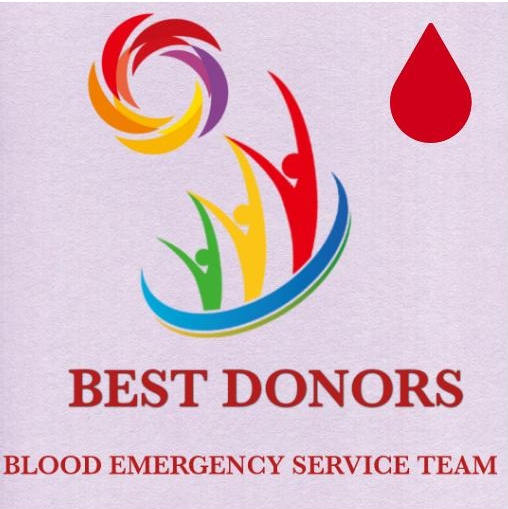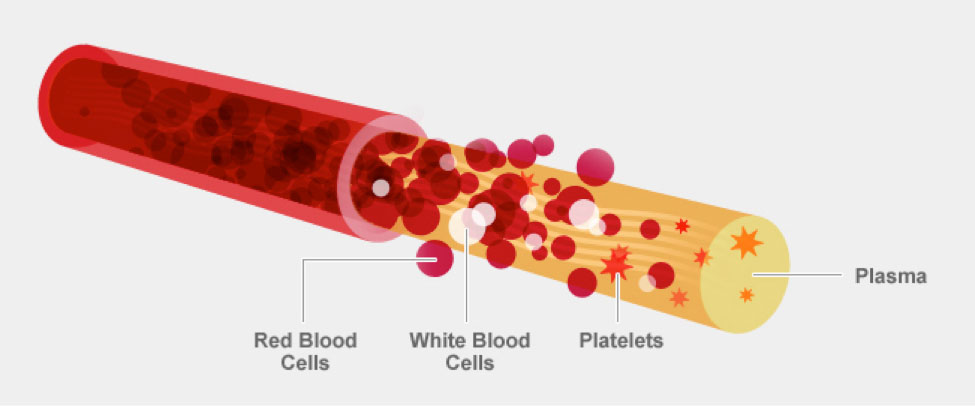Case studies of blood requirement.
There are some case studies which were followed up and couldn’t succeed in saving lives.
One thalassemia kid with AB-ve (AB Negative) blood group which require blood transfusion once in every month got died due to unavailability of blood donors.
If everyone donates blood, there won’t be any situation like this.
One cancer patient with O+ve (O Positive) blood group died due to unavailability of platelets on time.
If donors donate blood and platelets on time, there won’t be any deaths due to this.
One pregnant lady with A-ve (A Negative) admitted in hospital due to blood loss. One donor immediately responded and donated blood to her. She gave birth to a girl.
Donor donated blood on time, transfusion done, and the patient is safe.
Like this there are so many requests waiting for blood, platelets, and other components.
In addition, there are few donors who have awareness and donated at least 50 times by the time they reach 60 years.
If everyone has awareness on blood donation and donate regularly, there won’t be any shortage of blood in blood banks.
Remember, your single donation of whole blood can save up to 3 lives.
Try to donate at least once in 6 months.
Statistics of Blood Donation in India:
Every year, India requires approximately 14.6 million units of blood.
Shockingly, our country faces an annual deficit of 2 million blood units due to limited donations.
Only 1% of the Indian population donates blood each year.
Additionally, it’s worth noting that nearly 12,000 individuals die in India each day due to the non-availability of quality blood.
India needs approximately 14.6 million units of blood annually.
The eligible donor population in India is estimated at 402 million.
India faces a critical challenge when it comes to the availability of blood.
India aims to achieve 100% voluntary blood donation to ensure safety and reduce dependence on replacement donors.
The scarcity of voluntary blood donors persists due to a lack of awareness.
Many people remain uninformed about the importance of regular blood donation.
Eligibility to donate blood:
A person can donate blood once every three months, or four times a year.
A person with at least 55kgs weight, HB 12.5g/dl, BP 120/80 mmHg and between 18 to 60 years of age are considered eligible for blood donation.
However, there is some eligibility criteria that you need to meet before you can donate blood.
Some of the common eligibility criteria are:
- You should not have any infectious diseases, such as HIV, hepatitis, malaria, or syphilis.
- You should not have any chronic conditions, such as diabetes, heart disease, kidney disease, or cancer.
- You should not have any bleeding disorders, such as haemophilia or thalassemia.
- You should not have received any blood transfusions in the past one year.
- You should not have had any tattoos, piercings, or acupuncture in the past six months.
- You should not have taken any antibiotics, steroids, or hormonal pills in the past two weeks.
- You should not have consumed any alcohol or drugs in the past 48 hours.
Know your blood group type.
A+ve group (A1+ve, A2+ve)
A-ve group (A1-ve, A2-ve)
AB+ve group (A1B+ve, A2B+ve)
AB-ve group (A1B-ve, A2B-ve)
B+ve group
O+ve group
O-ve group
O Bombay phenotype group
These are the subtypes in some blood groups.
Make sure to know your blood group subtype and help yourself and help the needy.
Advantages of donating blood:
- Donating blood can help lower your blood pressure, cholesterol, and iron levels.
- This can reduce the risk of heart disease, stroke, and liver damage.
- Donating blood can also stimulate the production of new blood cells, which can boost your immune system and prevent infections.
Be prepared to donate blood or platelets regularly.
Know the gap between 2 donations.
- Whole Blood to blood donation 100-120 days.
- Red blood cells donation 120 days.
- White blood cells donation 120 days.
- Platelets to Platelets donation 2 weeks.
- Blood/Platelets to Platelets/Blood donation 1 month.
You can donate whole Blood 3 times in a year and platelets 24 times in a year.
Know your date of donation and make another donation after the gap mentioned above.
Be healthy and save others by donating blood or platelets regularly.
Please comment your views about this article.
Gaining knowledge is not knowing everything about something; it is knowing something about everything.

